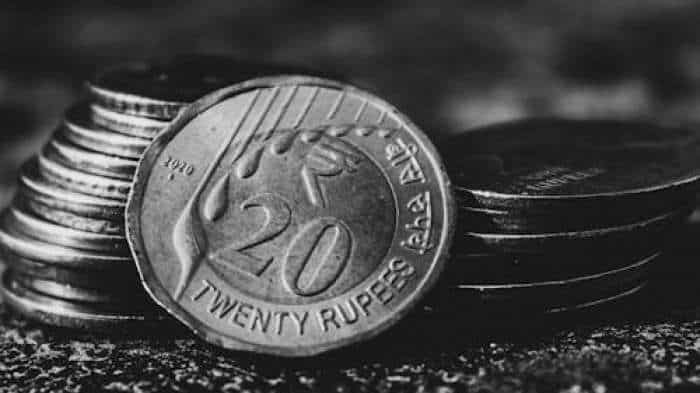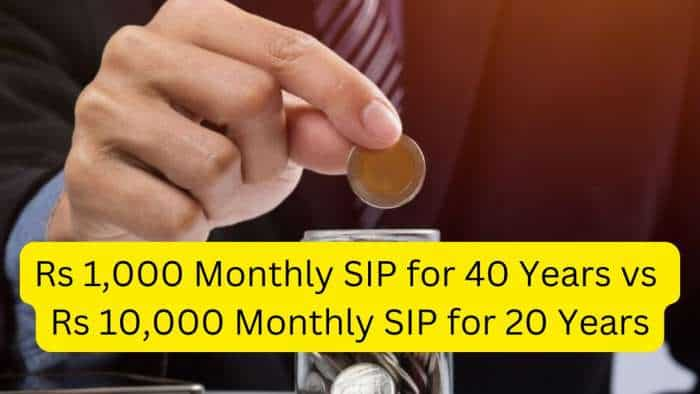States need to reset spending, cut freebies: Report
Several states are spending high amounts on populist schemes like farm loan waivers, and with the GST compensation from the Centre ending in June, they need to re-prioritise expenditure in accordance with the revenue receipts, a report said on Monday.

Several states are spending high amounts on populist schemes like farm loan waivers, and with the GST compensation from the Centre ending in June, they need to re-prioritise expenditure in accordance with the revenue receipts, a report said on Monday.
In some instances, the Goods and Services Tax (GST) revenue from the Centre forms over a fifth of a state's tax revenue, while they have been found to be spending on "economically unsustainable" freebies, the report by Soumya Kanti Ghosh, group chief economic adviser at State Bank of India, said.
Telangana has committed 35 per cent of revenue receipts to finance populist schemes, while Rajasthan, Chhattisgarh, Andhra Pradesh, Bihar, Jharkhand, West Bengal and Kerala have all committed to spend 5-19 per cent of their revenue receipts on such schemes, the report said, adding that in terms of percentage of a state's own tax revenue, the figure is as much as 63 per cent in the case of some states.
"Clearly, states seem to be currently living beyond their means and it is imperative that states rationalise their spending priorities in accordance with revenue receipts," Ghosh said.
See Zee Business Live TV Streaming Below:
It can be noted that some states have been demanding for an extension of the GST compensation scheme -- introduced at the time of the roll out of the indirect tax regime in 2017 -- for five more years.
Meanwhile, the report said that fiscal situation of states has been a collateral casualty of the pandemic, as per an analysis of 18 state budgets, which indicates that the average fiscal deficit as a percentage of gross state domestic product (GSDP) has been revised by an upward 0.50 per cent to over 4 per cent in FY22.
Six states have reported fiscal deficit of more than 4 per cent of GSDP, seven states have exceeded their budgeted target, while 11 states have been able to keep their fiscal deficit equal to or lower than their budgeted numbers during FY22, the analysis said.
The fiscal deficit of Bihar (8.3 per cent of GSDP or Rs 54,327 crore over its budget estimate) and Assam (4.5 per cent of GSDP or Rs 21,935 crore over its BE) exceeded their fiscal deficit significantly as per revised estimates in FY22, while Arunachal Pradesh, Jharkhand, Kerala, Maharashtra and Rajasthan are among the states having higher fiscal deficit than their BE (Budget Estimate), the report said.
For FY23, the report said that states have budgeted for a lower fiscal deficit of 3.4 per cent but posed some tough questions about the final outcomes given the constraints in receipts, adherence to fiscal discipline and hyper adventurism embraced by a select few states.
From a growth perspective, it said Andhra Pradesh, Assam, Gujarat, Haryana, Maharashtra, Rajasthan, Telangana and West Bengal show their real GSDP growth much higher than the overall GDP growth of the country.
However, the SBI report pointed to a dichotomy in the numbers, wondering how the GSDP for 17 states is higher than the growth in the national GDP. It, however, added that such gaps have always existed before as well.
In terms of investments, FY22 witnessed a 36.2 per cent in capital expenditure fuelled by the demands to upscale health infrastructure, but FY23 is set to see a sharp moderation in growth on this count to an average growth of 13.8 per cent for 21 states, it said.
Get Latest Business News, Stock Market Updates and Videos; Check your tax outgo through Income Tax Calculator and save money through our Personal Finance coverage. Check Business Breaking News Live on Zee Business Twitter and Facebook. Subscribe on YouTube.
RECOMMENDED STORIES

after bumper 2024 rs 2 lakh crore worth ipos expected in 2025 primary market nsdl avanse financial ecom express sebi approval

Power of Compounding: How can you create Rs 5 crore, 6 crore, 7 crore corpuses if your monthly salary is Rs 20,000?

Power of Compounding: Rs 5 lakh lump sum investment in 3 flexi schemes has grown to at least Rs 15.5 lakh in 5 years; see list

Latest SBI Senior Citizen FD Rates: How much senior citizens can get on investments of Rs 5,55,555, Rs 7,77,777, and Rs 9,99,999 in Amrit Vrishti, 1-, 3-, and 5-year FDs

Top 7 ETFs With Highest Returns in 1 Year: No. 1 ETF has turned Rs 8,78,787 investment into Rs 13,95,091; know how others have fared
06:35 PM IST








 Maharashtra will play key role in achieving India's $5 trillion economy goal: Minister Aditi Tatkare
Maharashtra will play key role in achieving India's $5 trillion economy goal: Minister Aditi Tatkare India's GDP growth to pick up in third quarter compared to first half of FY25: ICRA report
India's GDP growth to pick up in third quarter compared to first half of FY25: ICRA report GST collection grows 9% to Rs 1.87 lakh crore in October
GST collection grows 9% to Rs 1.87 lakh crore in October IMF says India's GDP growth to moderate to 7% in 2024 and 6.5% in 2025
IMF says India's GDP growth to moderate to 7% in 2024 and 6.5% in 2025  India poised to be third largest global economy by 2030, rising population presents challenges: S&P
India poised to be third largest global economy by 2030, rising population presents challenges: S&P